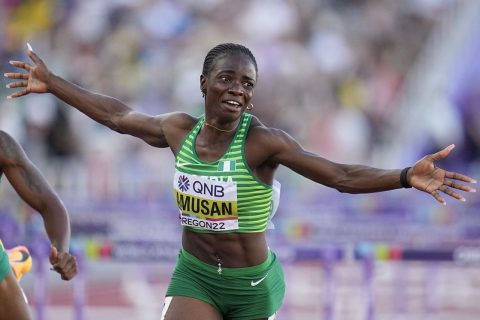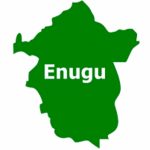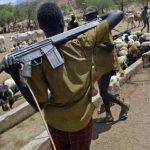Nigeria’s Sports Finest Hour – The XXII Commonwealth Games, Birmingham 2022
Akintokunbo A Adejumo, Articles/Opinion, Columnists, Featured, Latest Headlines, Letters/Rejoinders Sunday, August 21st, 2022
By Akintokunbo A Adejumo (akinadejum@aol.com)
(AFRICAN EXAMINER) – For Nigeria, the year 2022 should be dedicated to Nigerian Athletes, men, and women alike. Their feat and prowess, first, a bit of success in the World Athletics Champions held in Eugene, Oregon, USA (15 Jul 2022 – 24 Jul 2022) and then the spectacular successes at the XXII Commonwealth Games, held in Birmingham, United Kingdom (from 28 July to 8 August 2022), held the attention of our suffering and desolate, hopeless, and despondent, harassed, and insecure Nigerians. At least they lifted our spirits and once again brought some forlorn hope that, if we ONLY we put our efforts, patriotism and internal prejudices and distrust aside, we could really swing it as a united, prosperous Nation, country, people, and society.
The Games was the largest ever held, with 72 participating nations and ticket sales of 1.2 million. The games were the first to have more events for women than men.
At the end of the Commonwealth Games in Birmingham, the UK, on Sunday, August 7, Team Nigeria amassed 12 Gold, nine Silver and 14 Bronze medals, bringing the numbers to a total of 35 medals. Interestingly, at a time where Nigeria was most divided, nobody was asking where the athletes are from, what ethnic group or religion they belong to. None of that nonsense which has pervaded our lives for the past 8 years.
According to the Cable Newspaper, it was a record-smashing outing for Team Nigeria at the 2022 Commonwealth Games (CWG) in Birmingham. Medals were raked in at an exceptional rush while Nigerian athletes broke several records in the competition. Team Nigeria won 12 gold medals in the competition — the country’s highest haul in the history of the CWG.
Amazingly, all the gold medals were won by female athletes who took the tracks and gymnasiums in Birmingham by storm and wrote their names in the annals of the competition. Tobi Amusan surged to the finish line in 12.30 seconds in the final of the women’s 100-meter hurdles to set a CWG record. Ese Brume registered a record-setting 7-meter leap in the long jump.
In the women’s 4×100 meters, the quartet of Amusan, Favour Ofili, Rosemary Chukwuma, and Grace Nwokocha cruised to gold while setting a new African record with a time of 42.10 seconds.
Lifters like Adijat Olarinoye, Rafiatu Lawal, and Alice Oluwafemilayo also set new CWG records in their respective categories.
Nigeria finished the competition with 35 medals — 12 gold, 9 silver, and 14 bronze — to clinch a very creditable Seventh on the Medal’s table on the final day of the glorious competition.
Athletics provided the most medals for Nigeria with 10 podium finishes, followed by Wrestling, with seven.
Below is the full list of all 35 medallists for Team Nigeria at the 2022 CWG (Courtesy: The Cable (https://www.thecable.ng/full-list-amusan-brume-nigerias-35-medalists-at-2022-commonwealth-games ):
GOLD MEDALISTS
Tobi Amusan — Women’s 100m hurdles
Tobi Amusan, Favour Ofili, Rosemary Chukwuma, Grace Nwokocha, Joy Udo-Gabriel — (Women’s 4 x 100m Relay)
Ese Brume — Women’s LongJump
Odunayo Adekuoroye — Wrestling Women’s Freestyle 57 kg
Blessing Oborududu — Wrestling Women’s Freestyle 68 kg
Genesis Miesinnei Mercy — Wrestling Women’s Freestyle 50 kg
Adijat Olarinoye — Weightlifting Women’s 55kg
Rafiatu Lawal — Weightlifting Women’s 59kg
Alice Oluwafemiayo — Para-powerlifting Women’s Heavyweight
Chioma Onyekwere — Women’s Discus Throw
Goodness Nwachukwu — Women’s Discus Throw F42-44/61-64
Eucharia Iyiazi — Women’s F55-57 Shot Put
SILVER MEDALISTS
Favour Ofili — Women’s 200m
Elizabeth Oshoba — Women’s Featherweight Boxing
Ikechukwu Obichukwu — Para-Powerlifting Men’s Heavyweight
Bose Omolayo — Para-Powerlifting Women’s heavyweight
Ifechukwude Ikpeoyi — Para-Table Tennis Women’s Singles Classes 3-5
Nasiru Sule — Para-Table Tennis Men’s Singles Classes 3-5
Taiwo Liadi — Weightlifting Women’s 76kg
Hannah Reuben — Wrestling Women’s Freestyle 76kg
Ebikewenimo Welson — Wrestling Men’s Freestyle 57kg
BRONZE MEDALISTS
Udodi Onwuzurike, Seye Ogunlewe, Favour Ashe, Alaba Akintola, Raymond Ekevwo — (Men’s 4 x 100m Relay)
Ugochi Constance Alam — Women’s F55-57 Shot Put
Obiageri Amaechi — Women’s Discus Throw
Ifeanyi Onyekwere — Men’s Super-heavyweight Boxing
Jacinta Umunnake — Women’s Middleweight Boxing
Cynthia Ogunsemilore — Women’s Lightweight Boxing
Innocent Nnamdi — Para-powerlifting Men’s Lightweight
Isau Ogunkunle — Para-Table Tennis Men’s Singles Classes 3-5
Faith Obazuaye — Para-Table Tennis Women’s Singles Classes 6-10
Mary Taiwo Osijo — Weightlifting Women’s 87kg
Islamiyat Yusuf — Weightlifting Women’s 64kg
Edidiong Umoafia — Weightlifting Men’s 67kg
Ogbonna John — Wrestling Men’s Freestyle 74kg
Esther Kolawole — Wrestling Women’s Freestyle 62kg
I would urge readers to refer to my article of 22 August 2009 for more history of Nigerian sports ( https://www.inigerian.com/the-death-of-nigerian-sports-and-a-walk-down-memory-lane-958/ It made me proud and cry at the same time.
Nigerian athletes have been appearing at major athletics meeting since 1952. At the All-Africa Games at Brazzaville (former Congo), they piled up an enviable record; where they won one event after the other and came back home with 9 gold, 5 silver and 4 bronze medals. Jumoke Bodunrin was one of the stars of that game, and she won the title of “Africa’s fastest woman”.
Nigerian athletes first participated officially in the Commonwealth Games in 1954 and they won several medals. In the High Jump, Emmanuel Ifeajuna (yes, the same Major Ifeajuna, a hero of the 1966 coup d’etat) created a new British Empire and Commonwealth Games record by clearing the bar at 6 ft. 8 in.; Nafio Osagie took the bronze in the same event. The Nigerian team also set a new record in the 4 X 100 yards relay by recording the same time of 41.4 seconds as Canada very narrowly beat them into the silver medal position. Another narrow defeat which gave Nigeria a silver medal was on the Hop, Step and Jump (now called Triple Jump) in which Peter Esiri jumped 50 ft 0 ½ in., one inch less than the winner. Nigeria’s third silver medal was won in the Long Jump by Karim A B Olowu. That same team also won 3 bronze medals; one each in High Jump, Long Jump and Boxing and came fourth in the 100 yards.
On the whole, it was a successful debut for Nigeria, coming fourth overall behind England, Canada and Australia. In the 1958 Commonwealth games, Nigeria again took silver in the 4 X 100 m Relay, took bronze in 1974 but finally won this event at the 1982 Games.
At the Commonwealth Games held in Kingston, Jamaica in August 1966, Nigeria carried away more than half of the gold medals for boxing, won the glamorous long-distance races, shone in the sprints and broke several records.
The highlight of Nigeria’s remarkable performance was, however, Violet Odogwu’s success in the women’s Long Jump. She won the bronze medal and had the distinction of being the only African woman to win a medal at the games and she also reached the finals of the 80 metres hurdles.
Overall, Nigeria won 3 gold; 4 silver and 3 bronze medals and came 7th out of the 36 countries which took part in the Games. There were 28 athletes, boxers and swimmers and it showed then in 1966, that Nigeria has a wealth of athletic talents which with more adequate training, facilities and more experience were likely to take her place among the leaders in the world of sports.
In my article, “The Death of Nigerian Sports And A Walk Down Memory Lane” (Published 22 August 2009, https://www.inigerian.com/the-death-of-nigerian-sports-and-a-walk-down-memory-lane-958/ ) I wrote “Sometime in 1983, while I was doing my Master’s degree at the University of Manitoba, Winnipeg, Canada, I received a call from a reporter for the Canadian Broadcasting Corporation. I guessed he got wind of me being the President of University of Manitoba’s International Students Organisation and a founder of the Nigerian Union of Manitoba. He asked me if I could appear on CBC TV to discuss the phenomenal success of Nigerian athletes who had participated in the World University Games held at Edmonton, Alberta that year. I did not even know that Nigeria was represented at the Games. He told me that Nigeria sent only 10 athletes and these athletes won 5 gold medals. I was proud but hid my ignorance. I accepted and before I appeared on the show, I made sure I knew more about what happened.
In that 1983 World University Games; which was the debut year for this event by Nigeria, Chidi Imoh won gold in the 100 metres; Innocent Egbunike (now a coach in the United States) won gold in the 200 metres; Sunday Uti won gold in the 400 metres; Yusuf Ali won gold in the Long Jump and Ajayi Agbebaku won gold in the Triple Jump. All of them were of course, based in the United States, most of them on Nigeria’s scholarship.
In subsequent years, Nigeria was to perform creditably at these University games”
Back to the XXII Commonwealth Games. So, after this, euphoric and hopeful success, what next? Does this signal the return of Nigerian Athletics to the world stage? There was a time when Nigeria’s Sprint team/athletes were rated amongst the top/fastest 5 (five) in the world. We do not seem to remember those giddy days. Corrupt, selfish mediocre officials, nepotism, and crazy sports policies (if there was ever any) were the rules of the days. Officials used the opportunities of travelling abroad to collect estacode and shop for wives and girlfriends, abandoning the athletes and even embezzling the money meant for their up-keep and allowances. Funds for grassroot sports development were embezzled and mismanaged by officials. There was in-fighting within the sports associations with ambitious but clueless mediocre official gaining the high seats, only to mismanage the scarce funds and other resources from the sports budgets. And Nigeria Sports spiralled into the abyss.
Facilities and equipment are not left out. Yearly, millions are spent on stadium maintenance, but there is nothing to show for it. The National Stadium, Surulere, Lagos, was once the envy of the whole world. It was once known as the Sports City, but today it is now called a Garbage City, with the compound turned into drinking dens at night and religious activities during the day.
Again, the state of sports in the country shows how daft and unintelligent our politicians are. Sports, especially success in sports, remain one major unifying factor in this our country of diverse cultures and religions. In other Third World countries as diverse as ours, the politicians use sports to defuse unrest, to unify the cultures and religions; they use sports as a diversionary means to get the mind of the masses off their problems, and thereby able to concentrate on governing. Take football for instance, when Nigeria is involved in major competitions, that is when you know that we are actually united and patriotic and everybody, marginalised or not, start waving the green-white-green and shouting “Up Nigeria” and not “Up Niger Delta”, “Up Biafra” or “Up Oduduwa”.
Sports could be a tool for a patriotic politician. If Nigeria wins in any sports event, we will not mind them taking the credit, although we know they have not contributed anything to such success.
Corporate help is needed and companies such as Shell, Globacom, MTN, etc are already doing their best, but are given very little encouragement or support by the government. In fact, the money these corporations pour into sports in Nigeria practically end up in the pockets of corrupt civil servants in the Sports ministries and other government officials.
In Nigeria of today, despite the economic downturn, there is no reason why each local government should not have a moderate sports stadium in its area, where schools in their respective areas can hold their annual inter-house sports, and local boys and girls can display their sports talents. This is called grassroots sports.
Sports, like many other areas of governance in Nigeria, have been neglected mainly due to corrupt and inept governance. There are no incentives for budding athletes; corrupt officials embezzle money meant for sports development; the sports facilities are ill-equipped or not even equipped at all; and the facilities themselves are deteriorating and underused; sports management and administration are poor and run by ill-trained, ill-motivated officials whose only purpose is that of making money, or at worst, are happy to have a job; competent sports administrators are not given a chance to input ideas and actions to effect changes, and are always shut out of decision making processes; and there are no longer grass-roots sports development in the primary, secondary and tertiary institutions to discover talents.
It is the likes of the athletes of the XXII CWG that can give us some hope, and I’m sure the Sports Minister, Mr Sunday Dare, will be basking in this success during his tenure, though he might have contributed very little to the success.
Related Posts
Short URL: https://www.africanexaminer.com/?p=80124






















